6 hot questions about Malaysia’s fiercest General Election yet
Do voters really care about the 1MDB scandal? Will Dr Mahathir Mohamad be an asset or a liability to the opposition? The hot questions are debated on the programme Insight.
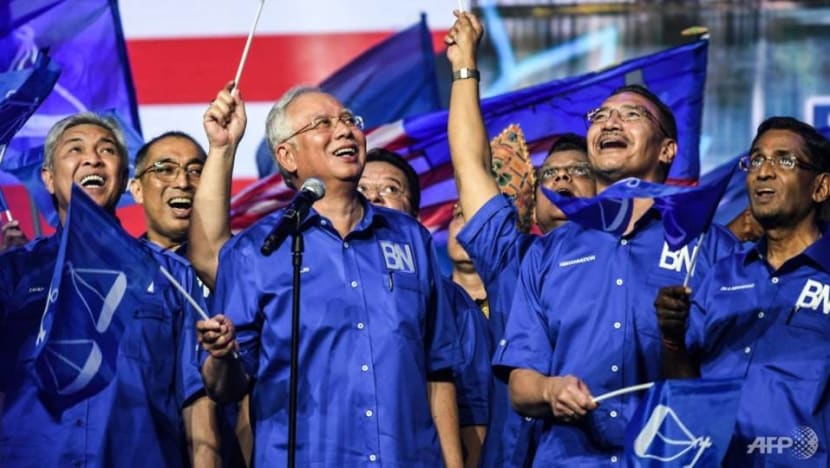
Malaysian Prime Minister Najib Razak launching his coalition’s election manifesto ahead of the coming polls, during a Barisan Nasional rally in Kuala Lumpur on Apr 7, 2018. (Photo: AFP/Mohd Rasfan)

This audio is generated by an AI tool.
MALAYSIA: It has been dubbed the mother of all elections — a do-or-die battle that will determine the destiny of Malaysia’s ruling coalition Barisan Nasional (BN) and of Prime Minister Najib Razak’s leadership.
On the one hand, the country’s 14th General Election on May 9 offers the ruling coalition a chance to turn the tide after its worst electoral performance, in the 2013 elections.
On the other hand, after denying BN its customary two-thirds parliamentary majority in 2008 and then winning the popular vote in 2013, the opposition now hopes to pull off the biggest upset in Malaysia’s political history.
With the financial irregularities at state investment vehicle 1Malaysia Development Berhad (1MDB) and the corruption allegations levelled at the government, as well as the rising cost of living, opposition alliance Pakatan Harapan is promising reforms and fresh policies.
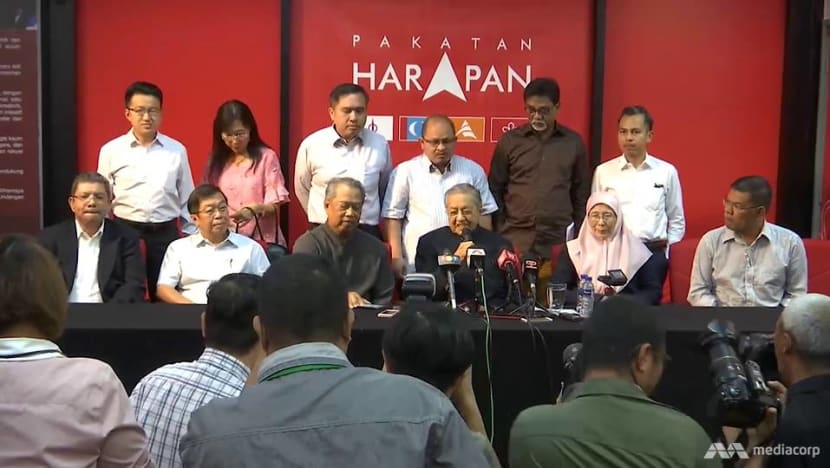
But if the coming election looks set to be the ruling coalition’s toughest battle yet, there are also opposition leaders who feel this may be the last shot at beating BN.
“You’re looking at the end of the arc in this 10-year movement. By 2018, it’s about reminding (people) to finish what they started,” said Parti Keadilan Rakyat vice-president Nurul Izzah Anwar.
It’s basically the most important elections that would determine the possibility of ending this decades-old BN rule.”
If the opposition fails in its third bid, then the ruling coalition under Mr Najib “will be entrenched”, according to Democratic Action Party secretary-general and Penang chief minister Lim Guan Eng.
With Malaysia’s most closely watched elections beginning on Saturday, Nomination Day, the programme Insight looks at six hot questions on the road to Putrajaya, the centre of the federal administration.
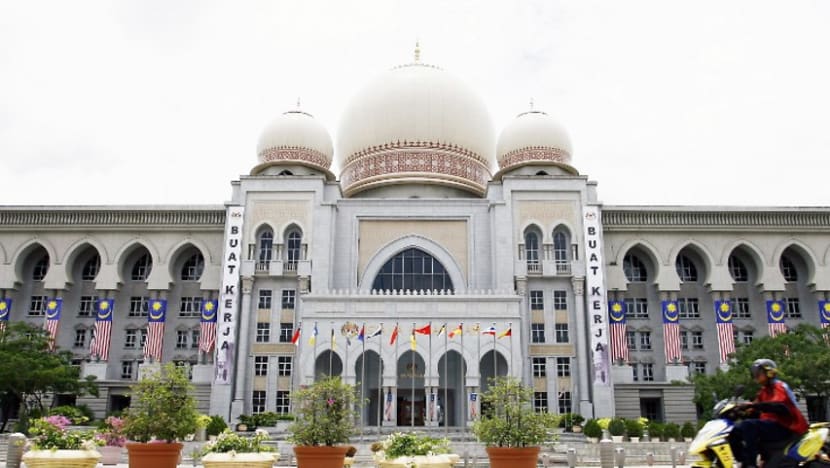
1. DO VOTERS CARE ABOUT 1MDB?
If Pakatan Harapan comes into power, it has pledged to launch an independent probe into 1MDB.
And that is music to the ears of lawyer Eric Paulsen, the executive director of Malaysian human rights organisation Lawyers for Liberty. He said: “Over the last 10 years especially, we’ve seen corruption at levels that were unseen before.”
But such issues do not appeal much to residents in rural areas, who “have no time” for politics and scandals, said Iseas-Yusof Ishak Institute visiting fellow Serina Abdul Rahman.
I think, for the most part, they choose to not know about what’s going on because they feel it doesn’t relate to them.
“They just want to make sure they have enough food on the table," she added.
Take, for example, mobile phone salesman Mohammad Amin Sha’aidin, who lives on the outskirts of town in the largely rural state of Kedah and has always voted for the United Malays National Organisation (Umno), the linchpin of the BN government.
He views the corruption allegations as “more or less” an effort to tarnish the government’s reputation. “As people say, sometimes those can be acts of sabotage by others. I can’t discount that entirely,” he said in Malay.
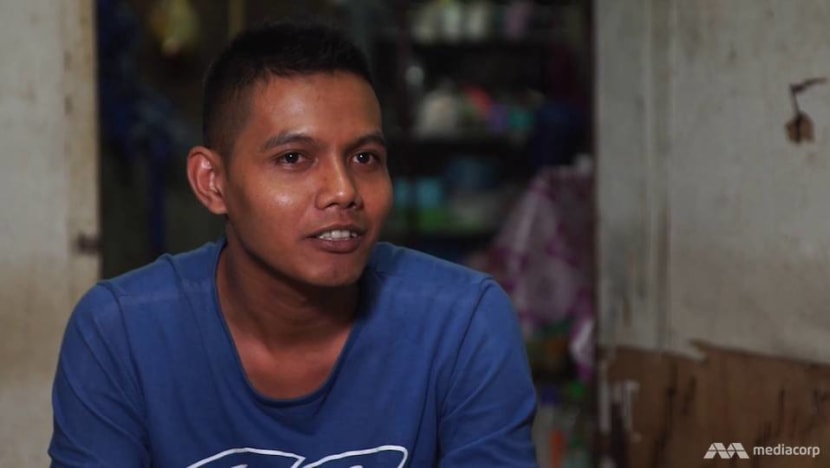
The issue also “makes no difference” to the older generation, who feels “indebted” to Umno, said Dr Serina. “The older folks whom I spoke to think it’s all fake news, and they don’t believe it.”
Ultimately, whether or not voters understand the technicalities of the scandal, “it’s not only the 1MDB issue that’s of concern to the electorate”, noted Dr Norshahril Saat, an Iseas-Yusof Ishak Institute fellow in regional strategic and political studies.
2. WHAT ARE THE BREAD-AND-BUTTER ISSUES?
The rising cost of living and stagnant wages are two major concerns of many ordinary Malaysians. Mr Amin said his monthly pay of about RM1,000 (S$340) hardly covers his expenses, which include rent, food and other bills.
“For people like us in the private sector, just ensure that our salaries are enough, so that we don’t feel burdened when we want to buy food or other things,” he said.
In this regard, the implementation of the Goods and Services Tax in 2015, which stands at 6 per cent, is a sore point among segments of the public.
The opposition hopes to translate this into votes and has promised to scrap the GST within its first 100 days in office, if elected.
WATCH: What do voters actually care about? (8:03)
Referring to Mr Najib’s statements that the GST saved the country, Mr Lim said: “GST didn’t save Malaysians; GST only saved him and the federal government. It hurt the people. Many poor people who had never been taxed were taxed.”
Johor Bahru Member of Parliament and former minister Shahrir Samad agreed that the tax was “not so popular” but laid into the opposition for making it a political punchbag. “Even if they win, they won’t get rid of the GST,” he predicted.
Mr Ibrahim Suffian, the co-founder of opinion research firm Merdeka Centre, said the GST and issues such as removal of subsidies have taken their toll on the support for BN. But he also credits its leaders with being responsive.
“They’ve put in place measures and incentives to try and help people, particularly in the bottom 40 per cent of the income segment,” he noted.
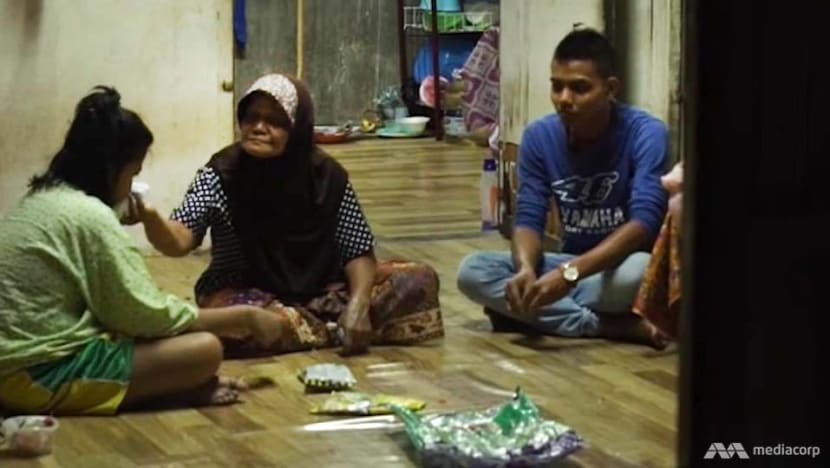
3. MAHATHIR — ASSET OR LIABILITY TO THE OPPOSITION?
One man trying to make abuse of power more of an election issue is former Prime Minister Mahathir Mohamad, who is out to topple Mr Najib after failing to force his resignation.
The 92-year-old is Pakatan Harapan’s prime-ministerial candidate for the interim period until opposition leader Anwar Ibrahim’s prison sentence for sodomy is over. But Ms Nurul Izzah knows that her father’s one-time rival is a “very polarising figure”.
We had to calculate whether the support bled can be overcome by the support garnered, and I believe so …
“People do appreciate (Dr Mahathir),” she said, noting that he wanted to join the alliance.
Mr Lim, too, sees the “contradictions” in accepting Dr Mahathir into the opposition fold.
“(But) he says two things which I think resonate among the public: ‘Okay, you may not agree with a lot of policies I’ve done. But when I was PM, I never had RM2.6 billion in my personal bank account,’” cited Mr Lim.
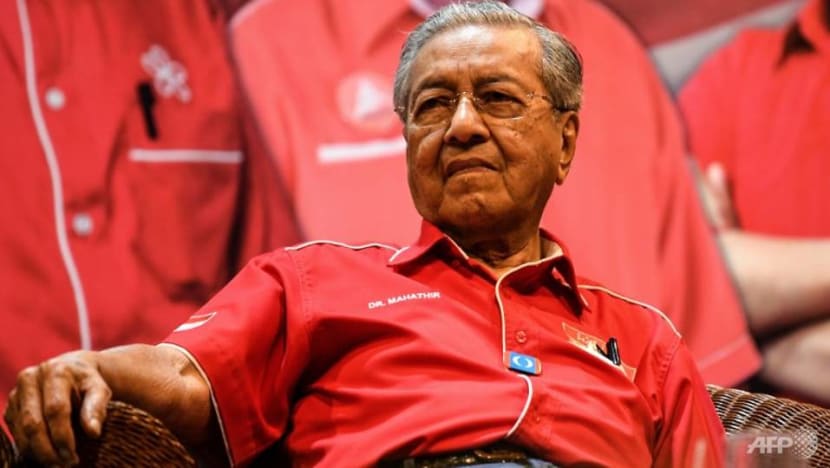
Umno Youth Executive Committee member Shahril Hamdan doubts that this marriage of convenience will last long.
He said: “This can’t be interpreted any other way: Simply their shared desire to take power. But once they take power, the divisions would resurface, and goodness knows what’s going to happen then.”
Dr Norshahril expects BN to attack Dr Mahathir’s track record as Malaysia’s premier and his teaming up with his former enemies, by asking voters whether they can trust him after his “many political U-turns”.
Still, he could be a net asset. As Mr Ibrahim said, “The opposition entered this electoral contest from the middle of 2015 onwards with a severe deficit in terms of the ethnic Malay voters’ support.
“With Dr Mahathir on board, he has been able to claw back some support from BN.”
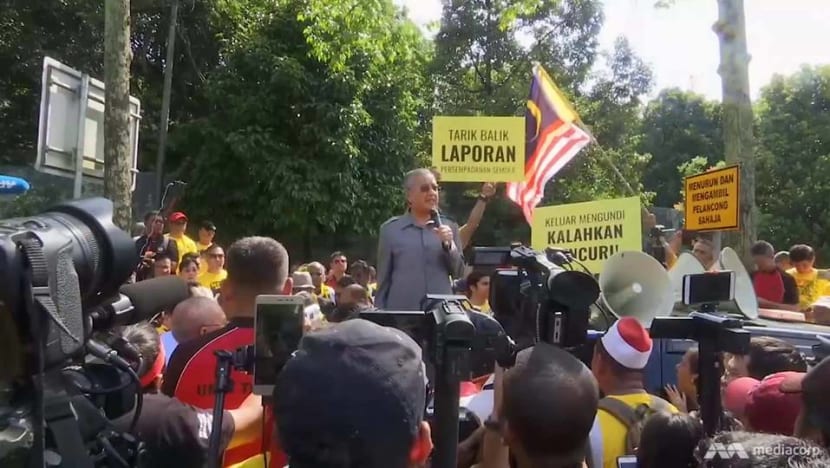
4. WHAT IMPACT WILL PAS HAVE?
The deficit the opposition alliance hopes to make up for comes from the loss of Parti Islam SeMalaysia (PAS), which broke away in 2015 to champion its Islamic agenda, after its spiritual leader Nik Aziz Nik Mat died.
His death is a “major setback” for the party, which has no other charismatic leader who can “draw support from the masses”, said Dr Chandra Muzaffar, the founder and president of think tank International Movement for a Just World.
“If you look at PAS from other dimensions, I don’t think its performance has been outstanding in the last few years. It didn’t handle the floods (in Kelantan) very well, and that’s something the people still talk about,” he said.
“So PAS enters the arena with some disadvantages this time.”
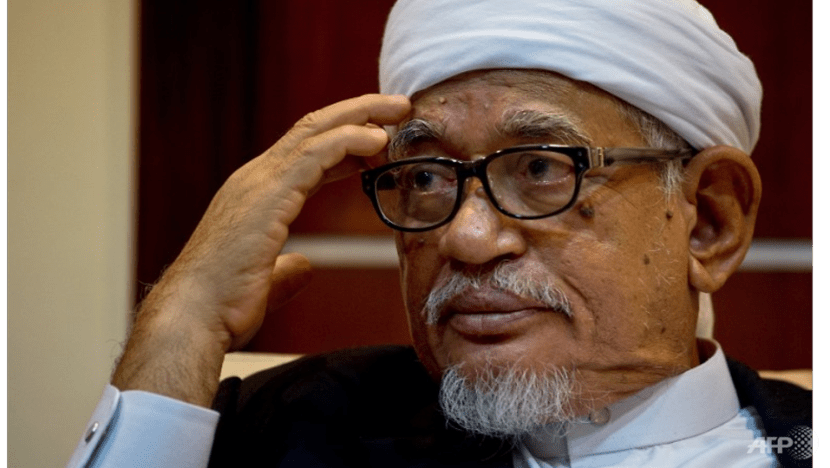
Defending the party’s past electoral gains will be harder also because its more moderate leaders left to set up Parti Amanah Negara, which is now part of Pakatan Harapan.
PAS supporter Kamal Hakiki Che Abdul Hamid was disappointed when his party decided to go it alone. He felt that the earlier alliance would have had a chance of ousting BN.
“I was shocked at first, but we just have to follow,” he said.
This strategic move closer to Umno means PAS will be a “third force in this whole game between BN and Pakatan Harapan”, said Dr Norshahril.
Ms Nurul Izzah said wryly that Mr Najib “dreamt of this moment when he started wooing PAS” in 2013. “But it doesn’t necessarily help BN per se. I predict that the biggest loser will still be PAS,” she added.
5. CAN THE RULING COALITION BANK ON ITS TRACK RECORD?
Along with the advantage of incumbency, BN will count on its long track record in managing the country.
“We’ve been serving as the government for the last 60 years, and we’ve been serving the people,” said Umno secretary-general and Minister of Federal Territories Tengku Adnan Mansor.
“There’s no party other than BN that’ll make sure that the future of this nation will be intact.”
The economy and political stability are expected to be the centerpiece of its campaign.
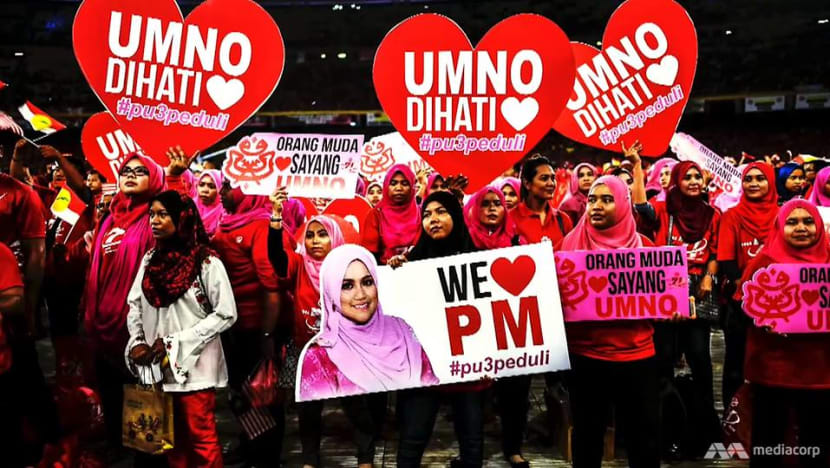
Dr Chandra said: “The BN would campaign on the basis of some of its inherent strengths, which the electorate can identify with: Peace and stability over six decades.
“They’d argue that the coalition parties have been largely responsible for the economic transformation of the country, they’ve raised living standards … and they’ve continued to practise democracy. When all is said and done, it’s a functioning democracy.
“And they’d also argue that they’ve maintained ethnic harmony, which most Malaysians would acknowledge is a very important prerequisite for a society like ours.”
Mr Najib has also weathered the storm caused by the 1MDB allegations. He had responded by sacking his critics within Umno, replacing the Attorney-General and clamping down on dissent.
Dr Norshahril said: “In terms of his popularity within the party, he has consolidated his power. … But whether society accepts this situation, we don’t know, and it’s yet to be tested. We’ll only find out after the polls.”
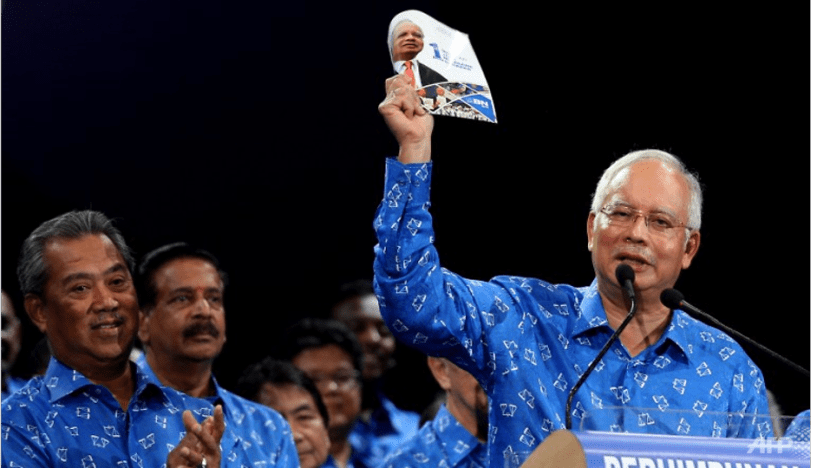
Umno veteran and former minister Syed Hamid Albar feels that it will boil down to the people’s perception of Mr Najib and his coalition — and that more must be done about issues like integrity, governance and transparency.
“The government must be able to convince them,” said Mr Syed Hamid. “It cannot just brush this aside and say there’s no negative perception.”
6. WHICH STATES ARE KEY BATTLEGROUNDS?
Several fierce contests are expected. One of them is in Kedah, Dr Mahathir’s home state, which BN recaptured from PAS in the 2013 elections. “We’ll stay in Kedah. That’s my belief,” Mr Tengku Adnan said spiritedly.
The north-eastern state of Kelantan, with its strong Islamic traditions and identity, has been ruled by PAS since 1990. But with the incumbent party weakened, Mr Tengku Adnan is predicting a “big fight”.
Opposition-held Selangor, Malaysia’s richest state, is regarded as the jewel in the crown. PAS’ departure from the alliance could lead to three-cornered fights, which would split the opposition’s support base.
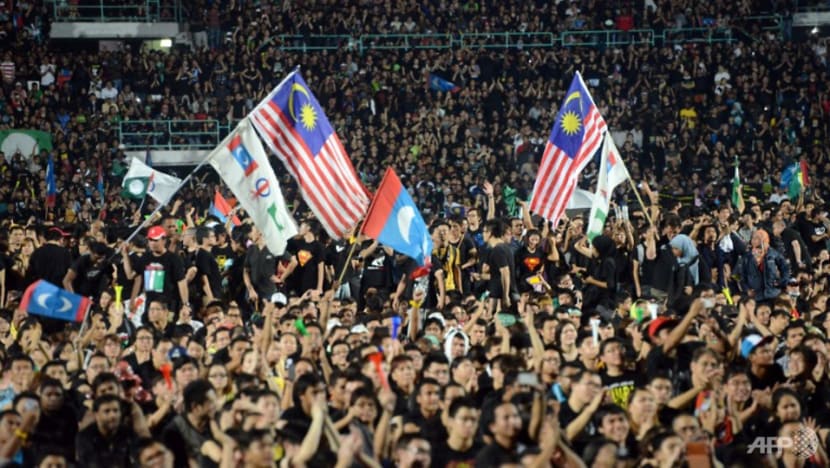
Johor, the birthplace of Umno, is widely seen as BN’s fortress. But it is also the home state of former Deputy Prime Minister Muhyiddin Yassin, who became one of the component leaders of Pakatan Harapan after Mr Najib sacked him.
Sabah has been called one of BN’s “fixed deposit” states, but former Umno strongman Mohd Shafie Apdal, who was the Rural and Regional Development Minister sacked by Mr Najib, is now leading the opposition charge there.
Summing up the contests, Dr Chandra said: “It’s going to be a close election, if you see it in terms of the way sentiments have been expressed, and you look at the popular vote the last time.
“But as of now, I feel that BN is still in a stronger position compared to the opposition.”
The programme Insight airs on Thursdays at 9pm.















